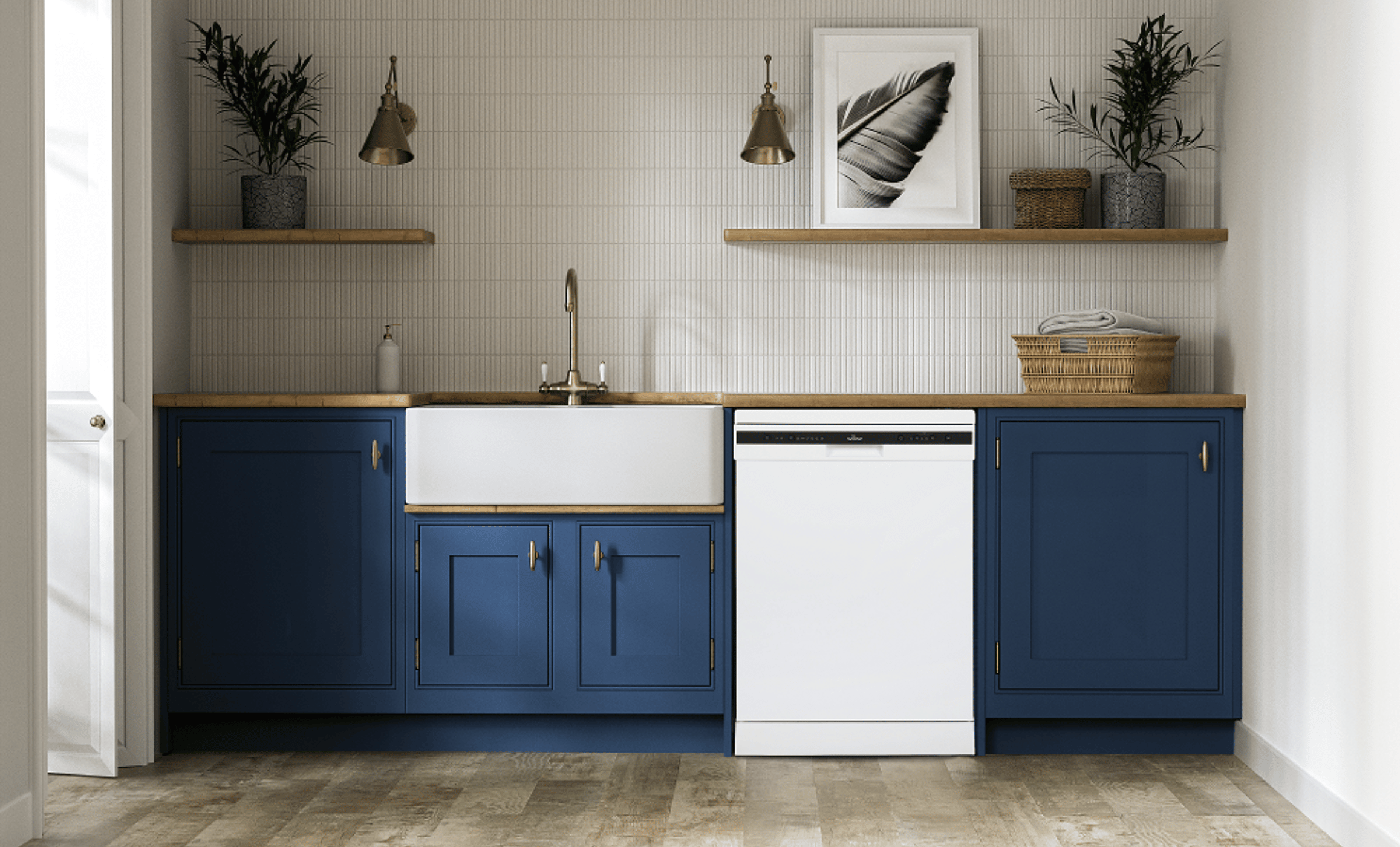Things to consider before buying a dishwasher
Dishwashers were once considered ‘luxury’ appliances, but they’re fast becoming a household essential. In the UK, around 49% of households own a dishwasher. When this survey was first undertaken in 1994, only 18% of UK households owned one. Ownership of dishwashers has nearly tripled in 30 years!
What are the benefits of owning a dishwasher?
When you’ve got a busy lifestyle, time is always precious. Any appliance that can take away one of your household chores and give you more time to yourself is always worth investing in. Especially if it takes away something as tedious as washing up. It’s not just about saving time though, dishwashers have so many other benefits.
Hygiene and Sanitisation
It has been proven that dishwashers are able to eliminate more bacteria than washing by hand does. When you’re hand washing, the water will be nowhere near as hot as the water in a dishwasher. Our hands simply can’t stand temperatures that high. The highest temperature that you are likely to get from your average kitchen tap is 50°C. Dishwashers are able to reach temperatures up to 80-85°C. The higher the temperature, the more bacteria is killed. This fact alone should convince you to invest in a dishwasher if hygiene is important to you.
Cleaner Glassware
Sometimes, you can spend hours at the sink and you’ll still struggle to clean certain items. Glassware for example, can be a real nightmare for streaks. You’ll find that most modern dishwawshers will have a ‘glassware’ or ‘delicate’ setting which is a big help. When using these settings, the dishwasher will run at a lower temperature and this will help to eliminate the streaky or cloudy look that glassware can have after hand washing.
Saving Water and Energy
Although you’re going to have to use electricity to run your dishwasher, it will in fact be more environmentally friendly than hand washing. When you’re hand washing your dishes and rinsing them off, you can use up to 60L of water at a time. This obviously depends on the amount that you have to wash and how often you need to refill your sink. However, you may be shocked to learn that a standard dishwasher can use less than 15L of water per cycle. They also don’t use much electricity as they’re not an appliance that needs to be on constantly. For example, the Willow WDW1260W only uses 94 kWh per cycle. If you’re only using your dishwasher once a day, it should cost you less than £1 a week to run depending on your energy tariff.
Safety
As well as being one of the most boring and tedious household chores, doing the washing up can also be quite dangerous. You might think that this is an exaggeration, but there are many different risks when it comes to washing up by hand.
- If the water is too hot, you are at risk of burning your hands.
- There is a risk of slipping over if any water spills out onto the floor.
- It is so easy to cut yourself on a sharp knife that has been left in the sink or washing up bowl. Although it is recommended that knives are not placed in washing up bowls or sinks, mistakes can be made. Cuts and lacerations are actually the number one type of injury caused in a kitchen!
- If any glassware shatters or cracks in the water, you could cut your hands on the shards.
- There’s a risk of chemical burns if you’re using a cleaning product that is too strong for your skin.

What are the different types of dishwasher?
There are several different types of dishwasher on the market. This means that you can find the best one to suit you, your kitchen and your needs.
Freestanding Dishwashers
Freestanding dishwashers can be placed anywhere in your kitchen that has a nearby power supply and a suitable water connection. They are most often placed near the kitchen sink or near an external wall. This makes it easier to install the waste pipe. Available as full size or slimline models, they work well under kitchen counters as they are typically no taller than 85cm. We stock a great range of freestanding dishwashers by Willow Appliances. This includes the full size WDW1260 which is available in white or inox and the slimline WDW1045 which is also available in white or inox.
Integrated Dishwashers
Integrated dishwashers are ideal for anyone who is renovating their kitchen and want a clean, minimalist look. You can get either full size or slimline dishwashers which are built into your kitchen and are hidden behind a custom cupboard door to match the rest of your cabinets. Willow Appliances have two integrated dishwashers available; the WDW1460I which is full size and the WDW945I which is slimline.
Tabletop Dishwashers
If you have a smaller kitchen, don’t have room for a regular dishwasher or you live on your own, then a tabletop dishwasher might be the ideal solution for you. Although these appliances are a lot smaller than regular freestanding dishwashers, they do exactly the same job. You just need to ensure you have the space for them on your counter top and you have nearby power and water supplies. Some tabletop dishwashers can also be used alongside your kitchen sink - they can be attached to your tap with an adapter. The Willow WTTD6W tabletop dishwasher has 6 place settings, so is ideal for a single person who doesn’t want to run the dishwasher on a daily basis.

Do dishwashers have to be installed in a kitchen?
No, if you don’t have the space or you simply don’t want an extra appliance in your kitchen, then there are other options. Most people do choose the kitchen as it’s the most practical option with needing a water and power supply. Other popular areas for dishwashers are laundry rooms, pantries and garages.
Things to consider when installing a dishwasher
As previously mentioned, there are a few different places where you can install a dishwasher. There are a few things that you need to consider if you are choosing somewhere that is not a kitchen.
Plumbing & Drainage
The location that you choose must have hot water access, drainage, and electricity.
Ventilation & Moisture Control
You need to ensure that the area is dry and well ventilated. This is in order to prevent mold or humidity buildup.
Floor Load & Water Safety
It is important that the floor in your chosen place is able to support the weight of the appliance. This is especially important in non-tiled rooms or upper floors. If, in the unlikely event that your dishwasher leaks, it is important that the floor will be easy to clean/dry out. Some types of floorings such as solid hardwood, carpet and laminate flooring are not ideal. Dishwashers are better placed on ceramic or porcelain tiles, concrete or vinyl flooring.
Appliance Type
If you’re struggling to find the best place for your dishwasher, then tabletop models may be more flexible for unconventional locations. They are easier to manoeuvre and you will need a lot less space.
If you have any questions about dishwashers, don't hesitate to contact us. Our friendly team are on hand to answer any queries Monday to Friday from 9am until 5pm.

